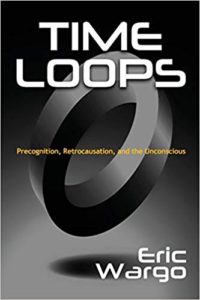The Nightshirt Sightings, Portents, Forebodings, Suspicions
Posts tagged with “Art of Memory”
The Ancient Art of Memory & the Modern Science of Dreaming
Check out my essay on dreaming and the ancient art of memory (hint: they operate on the same principles), the lead article in this month’s special issue of New Dawn magazine. You can also read the essay with its graphics by downloading a copy of Special Issue Vol 10 No 4 (PDF version) for US$5.95. […]
Unknown Unknowns: Psi, Association & the Physics of Information
I have always been skeptical of parapsychologists, because their experiments and their theories borrow the standard concepts of space and time dimensions from physics. These concepts seem obsolete to me. They are not appropriate for understanding telepathy, or the moving of objects at a distance, or ghosts, or Melchizedek. I have always been struck also […]
Feeding the Psi God: Precognitive Dreaming, Memory, and Ritual
I’ve mentioned several times the debt I owe to J.W. Dunne and his 1927 book An Experiment with Time. Dunne was not a scientific researcher or a parapsychologist by training, but a military man and aeronautical engineer who became interested in questions of time and its structure after becoming aware of uncanny examples of apparent […]
The Solaris Mind: Hypnagogia, Meditation, and Insight
A classic motif in science fiction is that humanity ventures to the farthest reaches of space only to find, impossibly, something of our own that we had forgotten. Stanislaw Lem’s 1961 novel Solaris, about a planet covered by a viscous ocean that manufactures simulacra from its observers’ unconscious, is probably the purest expression of this […]
Mutants, Mystics, and Scientologists (Thoughts on Jeffrey Kripal, Gnosticism, and Sci-Fi Spirituality)
Call me a slow learner, but it took me until my early forties to realize that some of the best and most inspiring things in life, besides girls, are the things I was obsessed with as a 10-year-old boy (i.e., just before I discovered girls). At 10, I was a typical nerdy 1970s kid, curled […]
What Dreams Really Are
[edit 1/10/09 — The original post is now clarified and expanded in my article “Dreams and the Art of Memory: A New Hypothesis About Dream Bizarreness“] Every few months a psychologist—or now, more often, it is a neuroscientist—aggressively promotes their new theory of why we dream, and it gets picked up in the press as […]
Juniper of Pistoia (or, sex and the art of memory)
Lately I’m obsessed with Peter of Ravenna. All the histories on the art of memory mention him as the first profit-minded memory wizard to actually write a popular manual on the subject (late in the 15th century) — a book aimed at regular people trying to get ahead in business, law, or whatever. His book, […]



